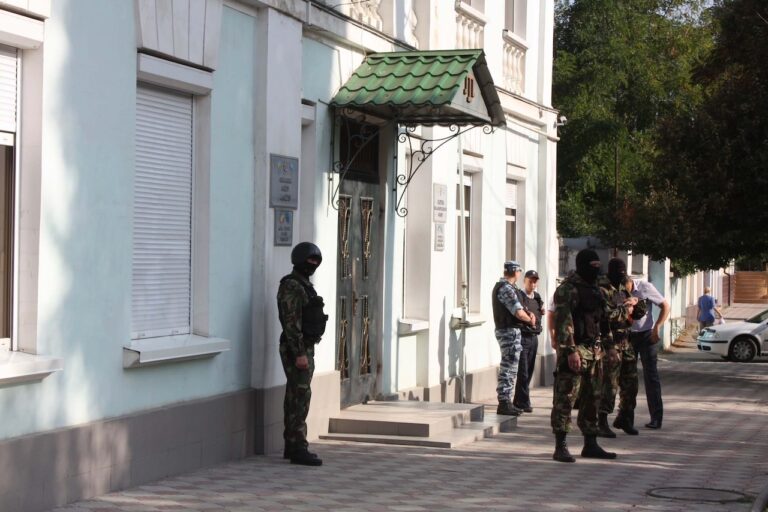(CPJ/IFEX) – CPJ is greatly encouraged by news of the arrest of a suspect in the October 1994 murder of Dmitry Kholodov, a reporter with the popular daily “Moskovsky Komsomolets.” He was the first journalist in Russia who became a target for assassins because of his investigative reporting. His murder shocked Russians and frightened media […]
(CPJ/IFEX) – CPJ is greatly encouraged by news of the arrest of a suspect in
the October 1994 murder of Dmitry Kholodov, a reporter with the popular
daily “Moskovsky Komsomolets.” He was the first journalist in Russia who
became a target for assassins because of his investigative reporting. His
murder shocked Russians and frightened media members. More than 5,000 people
attended Kholodov’s funeral where speakers, including Russia’s most
prominent democratic leaders, denounced the crime as an attack on the free
press.
**Updates IFEX alerts dated 18 October 1994 and 3 May 1995**
On 12 February, the Prosecutor-General’s office charged Pavel Popovskikh, a
retired military officer, with planning and participating in Kholodov’s
murder. The 27-year-old journalist, who wrote extensively on corruption in
the Russian military before his death, was killed when a booby-trapped
briefcase he had collected from a source at Moscow’s Kazanski railroad
station exploded in his newspaper’s offices. Kholodov, who had been
investigating organized crime connections with the military, had been told
the attache case contained secret documents exposing corruption at the
military’s highest levels. The newspaper’s editors accused the military,
including then Defense Minister General Pavel Grachev, of ordering the
contract killing. General Grachev blamed the Russian mafia.
Nevertheless, the high profile assassination of the journalist and
revelations of high level government corruption outraged the public and
frightened colleagues because it was so clearly linked to his activities as
a reporter. Although the deaths of journalists in the line of duty had
become a common hazard in politically volatile Russia, Kholodov’s contract
murder made the risk faced by reporters far more personal. The arrest of
Popovskikh, who formerly headed the intelligence department of the Airborne
Troops, revealed involvement by the military. Interfax reported that more
arrests were imminent, while on their front page, the editors of “Moskovsky
Komsomolets” said they hoped the forces who ordered the murder, and not only
those who carried it out, would be brought to justice.
CPJ applauds the efforts of Russian law enforcement officials to solve
Kholodov’s murder and bring those responsible for it to justice. Such
determined efforts are still needed in the unsolved murders of at least
13 journalists that CPJ confirmed were targeted because of their
journalistic writing and assassinated in the Russian Federation in
1993-1997. The other 12 cases registered as killings by CPJ concerned
journalists who were killed in armed conflicts. The Moscow-based Glasnost
Defense Foundation (GDF) has listed at least 51 journalists since 1994, not
including those who perished in the line of duty in Chechnya. CPJ’s total is
shorter because it does not include non-journalist media employees, and
victims of crimes apparently unrelated to journalism, although some of the
unsolved murders fall in a gray zone between commerce and journalism in the
newly privatized media.
For years, the government’s inaction in pursuing justice for the murders and
its failure to galvanize law enforcement agencies to protect journalists
from coercion, especially that by the military, served as a signal that
enemies of the press could act, even kill, with impunity. The prosecution of
those responsible for Kholodov’s murder, which had a great chilling effect
on investigative journalism in Russia, is an important signal to opponents
of press freedom that the risks involved in committing crimes against
journalists may now be greater. It is a vital step for Russia in fulfilling
its constitutional and international commitments to ensuring that
journalists may freely and safely practice their profession.


